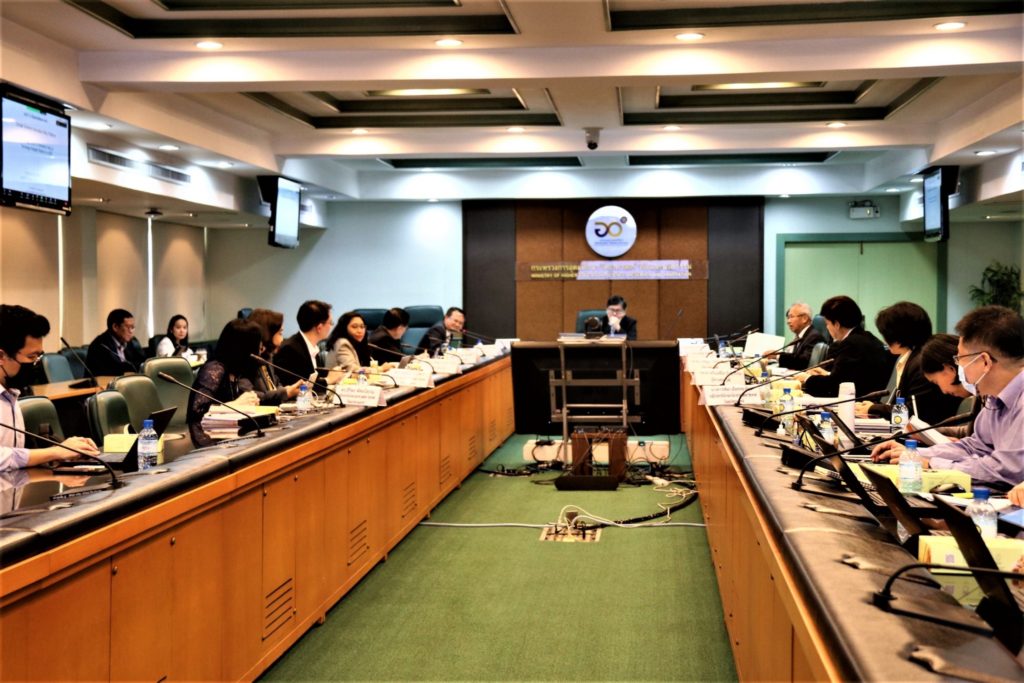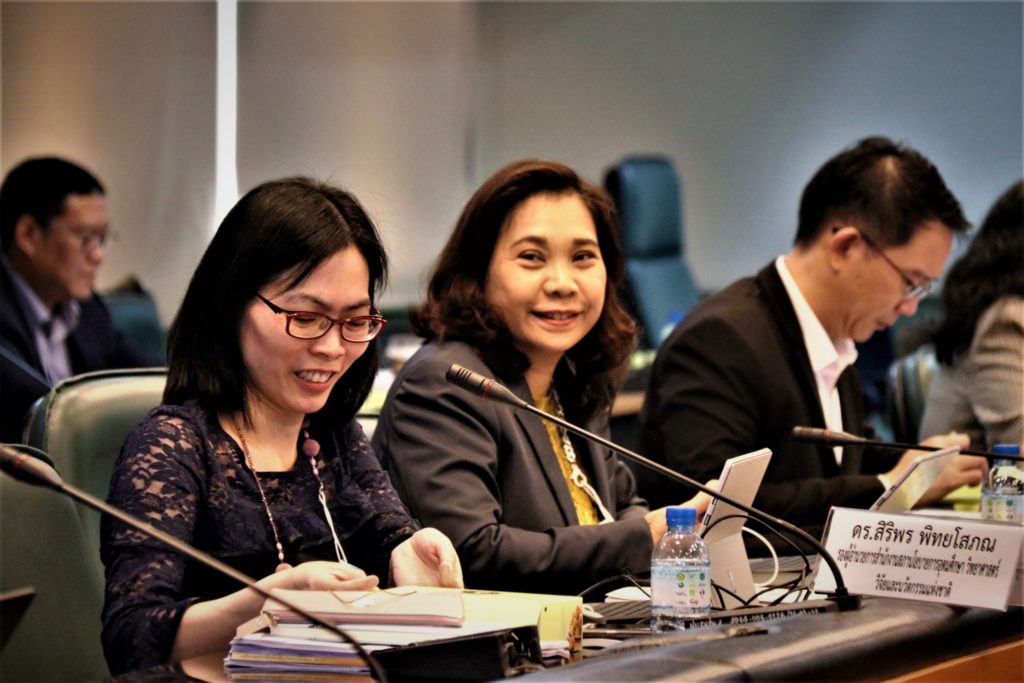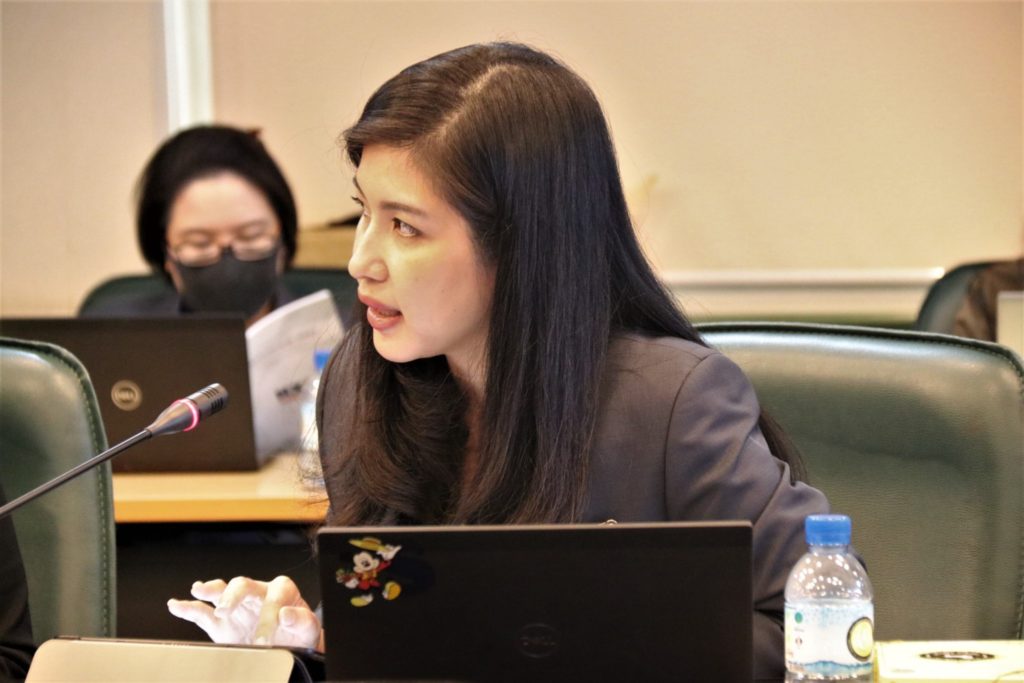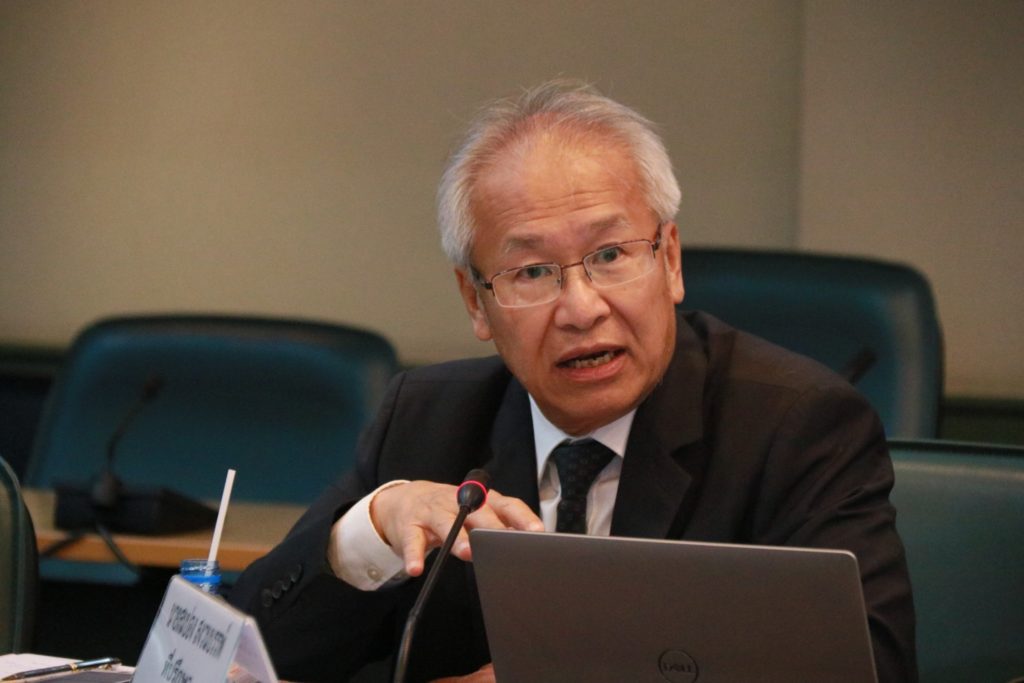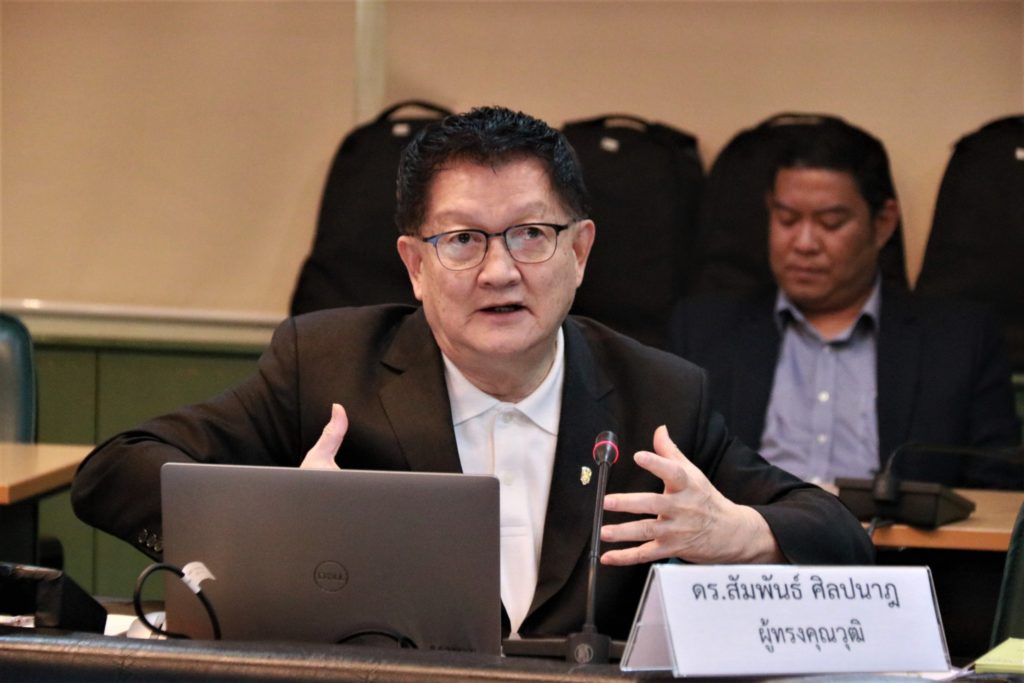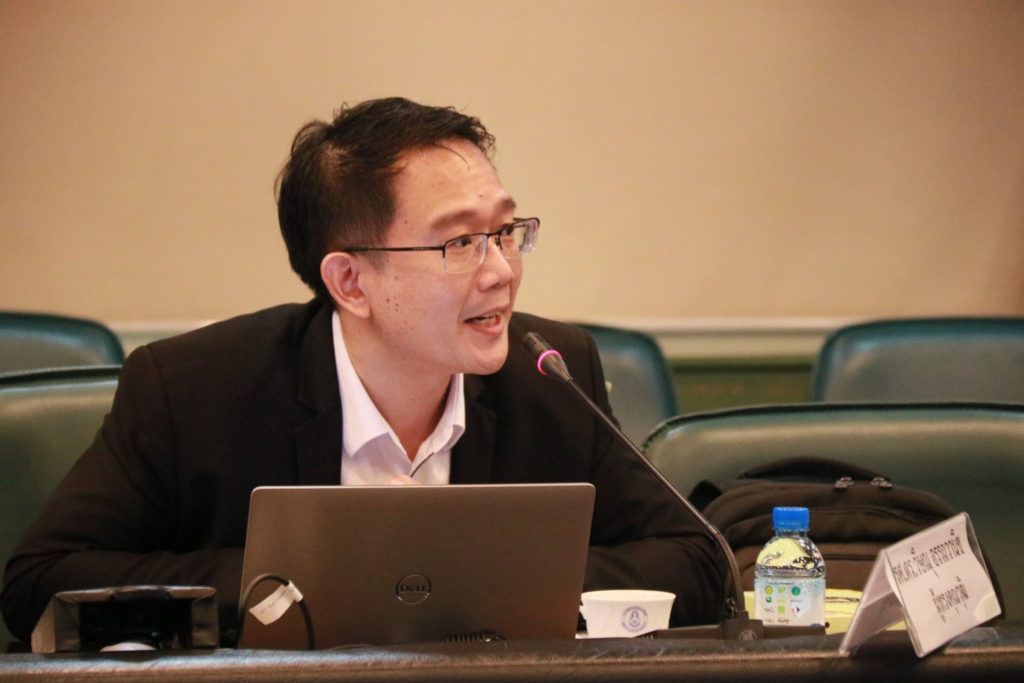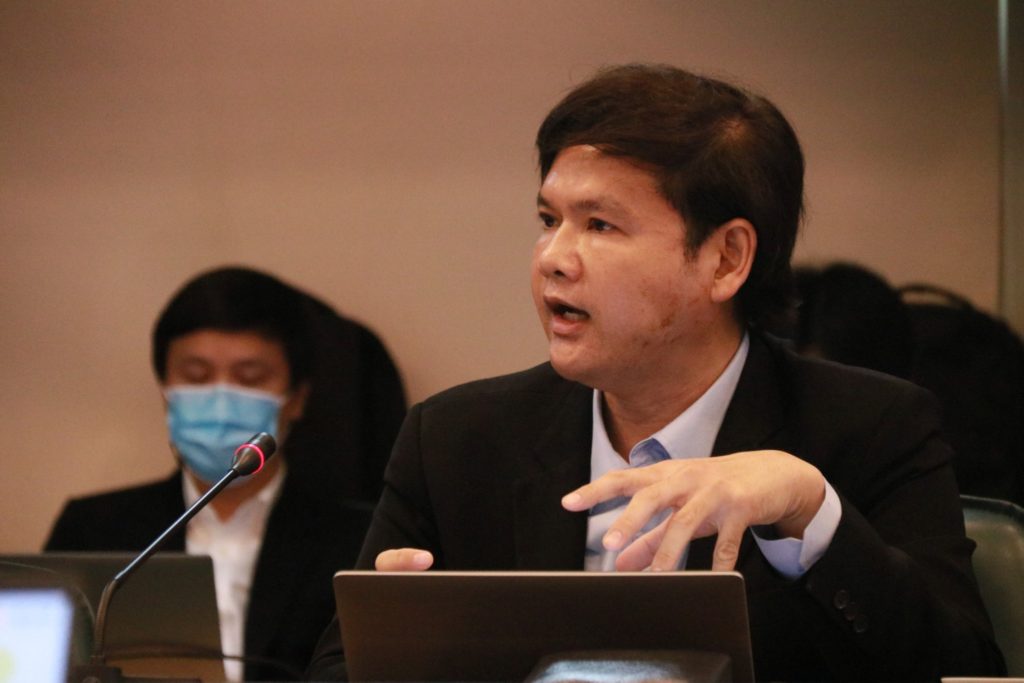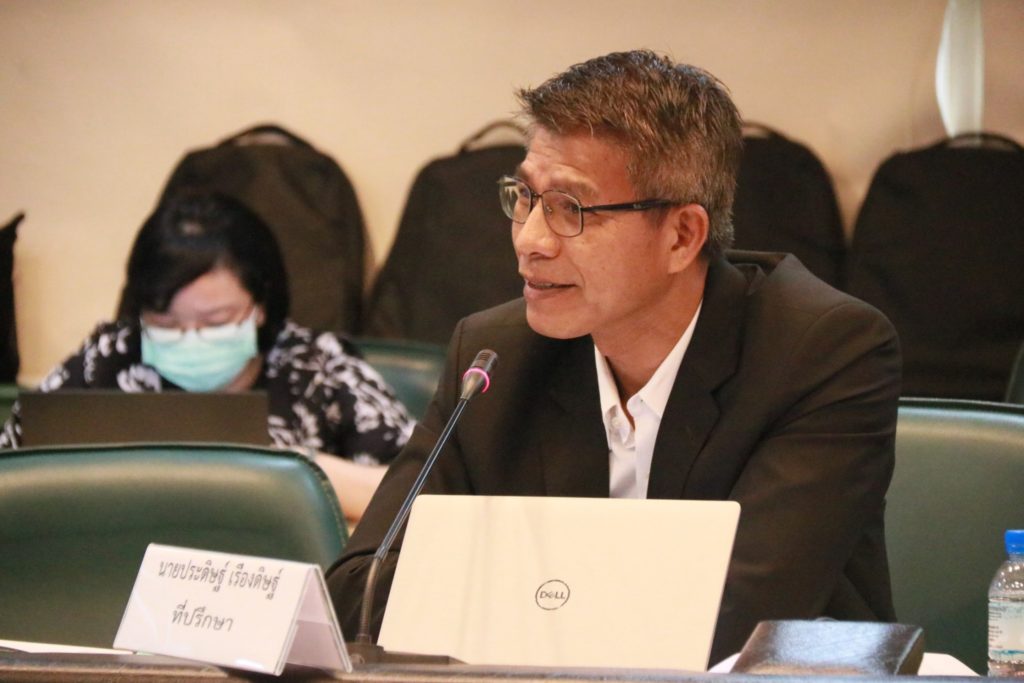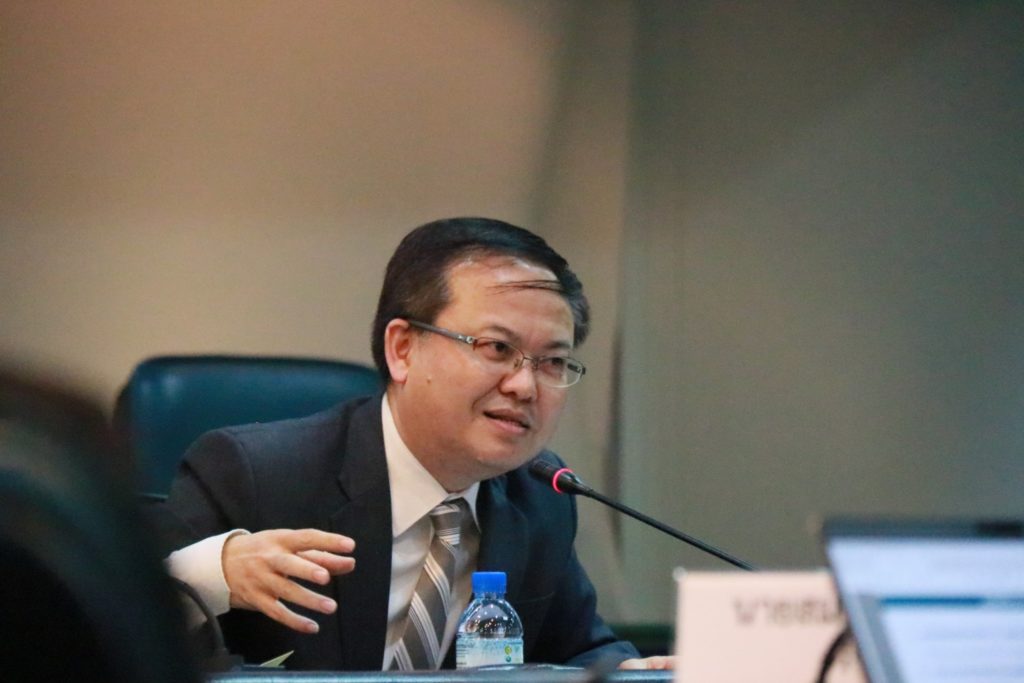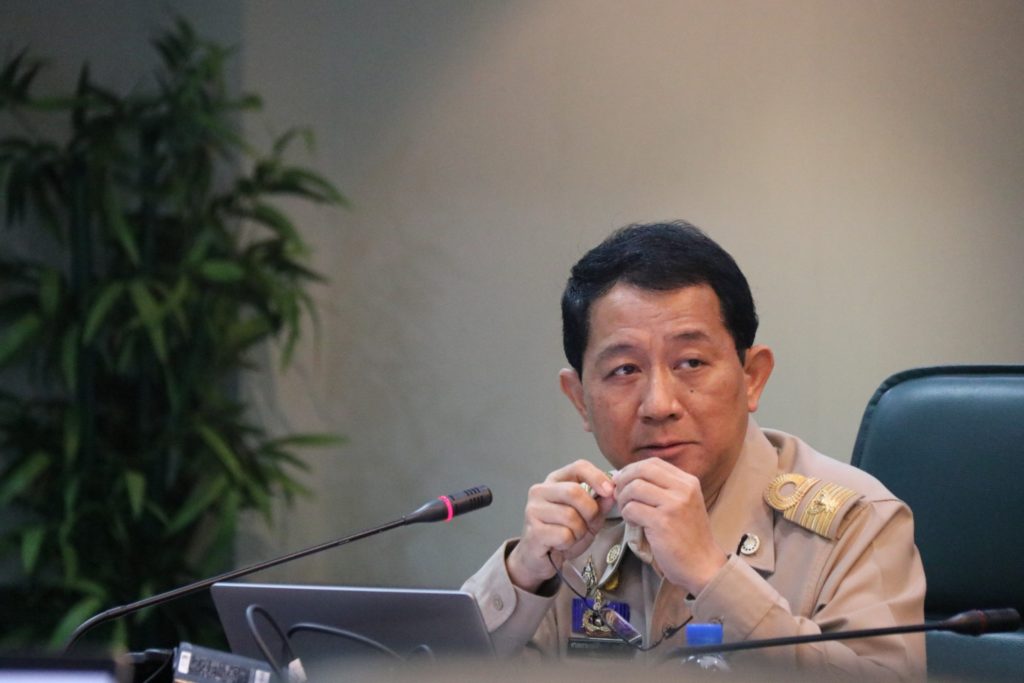NXPO organized Executive Board meeting on 8 March 2021. The meeting was chaired by Prof. Dr. Anek Laothamatas, Minister of Higher Education, Science, Research and Innovation (MHESI).
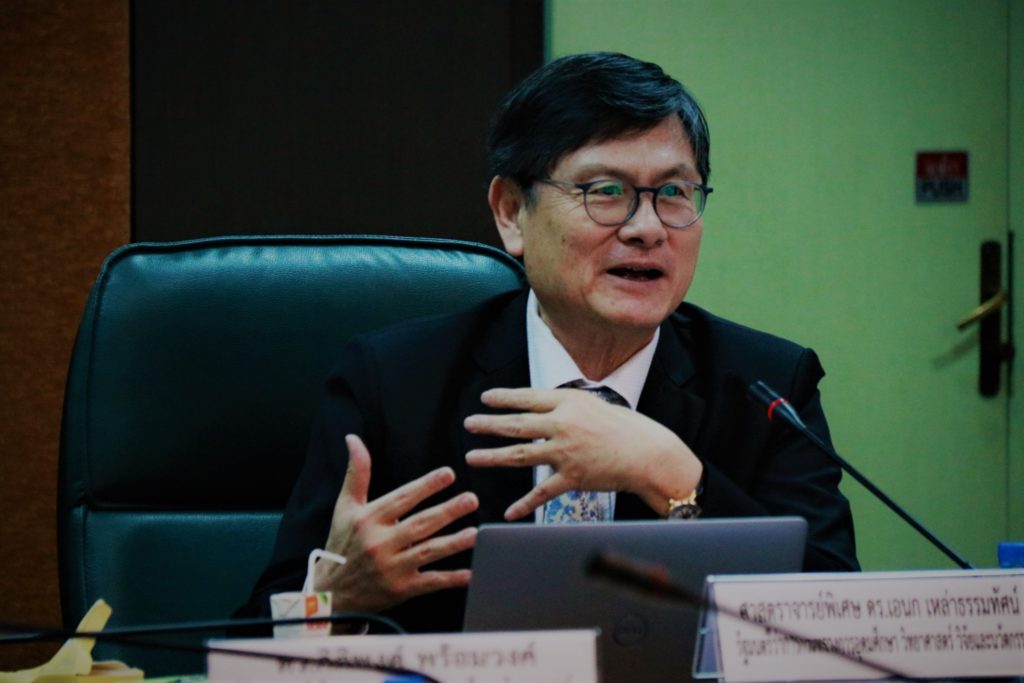
The meeting agenda focused on circular economy (CE). NXPO President Dr. Kitipong Promwong gave a presentation on CE Strategic Plan and CE Innovation Policy Platform. In CE Strategic Plan, CE will be applied together with the Sufficiency Economy Philosophy to achieve the UN Sustainable Development Goals (SDGs). Thailand’s CE model aims to make a 3% contribution to the GDP, reduce resource use by 1/3 and cut down greenhouse gas emissions by 25%. Best practices from countries such as Singapore, Japan, Germany, China, the Netherlands and Finland will be selectively employed to advance Thai CE.
The challenge of CE implementation in Thailand is the linear model mostly followed in the traditional manufacturing process. The policy, goal and direction of CE must be clearly set so that measures and incentives can follow to drive responsible production and consumption among manufacturers and consumers and for CE transformation to take off.
Among intervention models proposed by NXPO are 1) industrial symbiosis – the process by which wastes or by‐products of an industry or industrial process become the raw materials for another, 2) reverse logistic & recycle, 3) circular food waste, and 4) CE Platform for Green Construction & Smart City. In addition to these interventions, there is a need to establish infrastructures, enablers and projects to support CE such as CE sandbox and CE promotion law.
The meeting agreed that legislation is the key to CE and suggested a comprehensive review of laws in Thailand in order to propose amendments and new laws to enable CE development. Incentive measures, public awareness and infrastructure should also be developed in tandem. Minister Anek added that given Thailand’s advantage in biodiversity, the application of microorganisms to CE and green manufacturing should also be explored.

